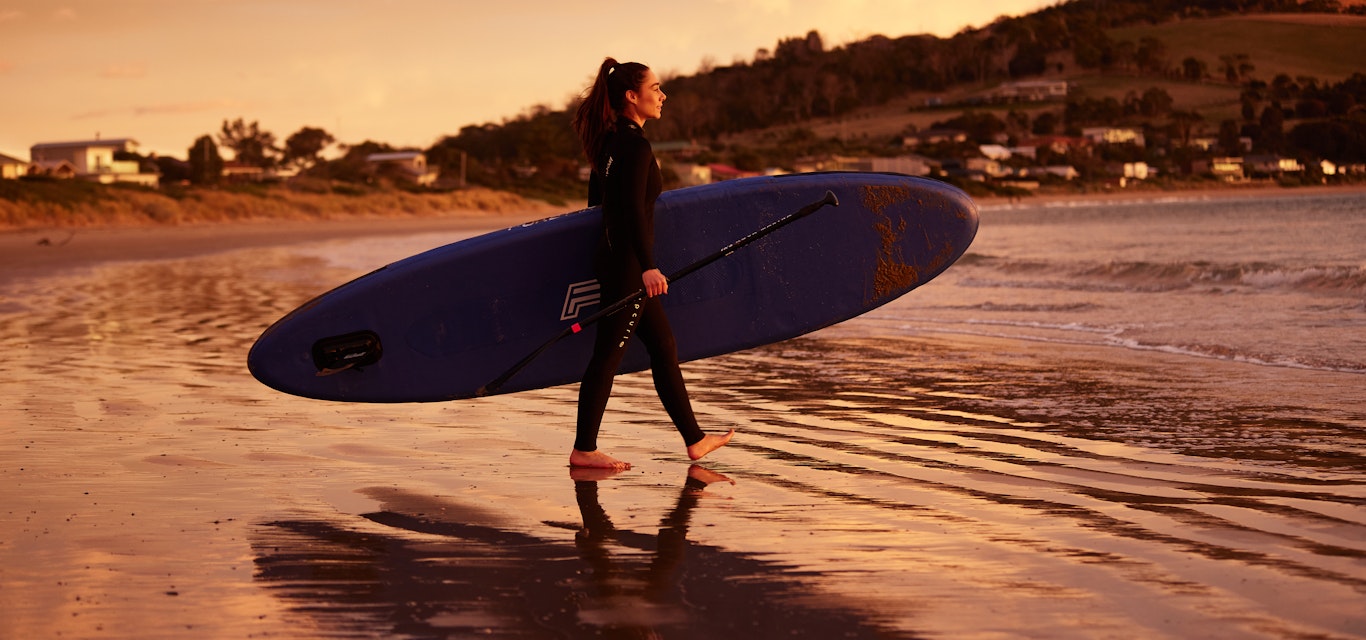Staying safe in the water this summer
Thanks to Surf Life Saving Tasmania, we've put together some tips on staying safe in the water this summer.
Swimming at the beach is a lot of fun, but it can also be dangerous if you don’t know what to look out for.
If the beach is patrolled by a surf lifesaving club, always swim between the red and yellow flags. If it isn’t patrolled, take some time before entering the water to check that it’s safe.
The Surf Life Saving Beachsafe app is a great way to check if the beach you’re visiting is patrolled. It will also tell you the current conditions and give real-time safety alerts.
Surf Life Saving Tasmania also has a list of patrolled beaches and surf life saving clubs across the state, so you can find a safe beach close to you.
How to spot a rip
A rip is a strong current that runs out to sea. They can take swimmers from shallow water to hundreds of metres offshore very quickly. It can be hard to spot a rip, but here are some common signs:
Areas of deeper and/or darker water
Waves breaking on both sides of the rip, but not inside the rip
Choppy, rippled effect on the surface of the water
Sandy coloured water beyond the surf zone
Debris or seaweed
A lot of water movement, which can also cause murky brown water due to stirred up sand
Foam on the surface and extending beyond the break
Fewer breaking waves
If you get caught in a rip
Relax
Stay calm and float. Don't swim against the current, swim across it.
Raise
Raise an arm to signal for help.
Rescue
Float and wait for help. Don't panic. Panicking will waste your energy and make you tired very quickly, which is how people can drown in rips. Obey the directions of the rescuer.
